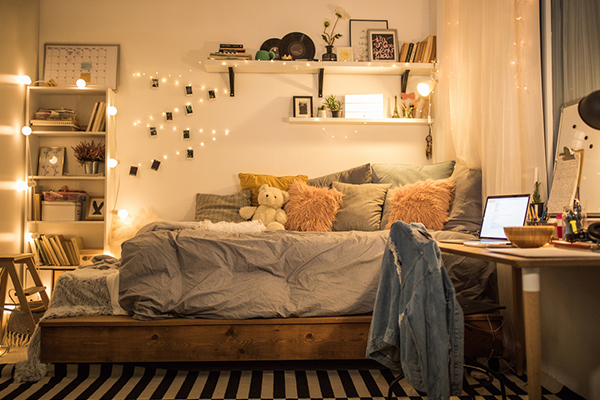If it's your first time living "out-of-home", or if you're just looking for a refresher, it's good to know what to expect when signing a lease.
With all the excitement and butterflies of moving into your brand new place, you can miss important points in your lease that may affect your living situation in the future. So, we've provided you with some suggestions to have a look through below. Make sure you're 100% comfortable before you sign on the dotted line...
1. What am I paying for and what is included?
One of the basics to get started with is establishing your monthly rental fee, what it covers and what is an extra cost. Water and electricity may be included in your rental, and if you have a good deal maybe even internet and parking. However, it’s also very common to simply pay your monthly rental fee, and have to cover those crucial expenses out of your own pocket. A huge consideration to keep in mind is whether you’re signing a lease for a furnished or unfurnished apartment. Furnished apartments, as the name implies, include a range of furniture and appliances with the apartment rental for your convenience. Unfurnished apartments are usually bare, providing the space for you to add your own furniture and they generally only offer a few essentials, like an oven if you’re lucky, and plumbing points for appliances. Parking is one of those aspects that is either included within your rental or it could set you back between a few hundred rand to well over a thousand rand a month, depending on your area and where you decide to park. But more on this later in the article. Understanding all the inclusive and additional costs associated with renting your apartment, no matter how basic, can help you create an accurate monthly budget which means you won’t be left reeling from wallet-related stress.
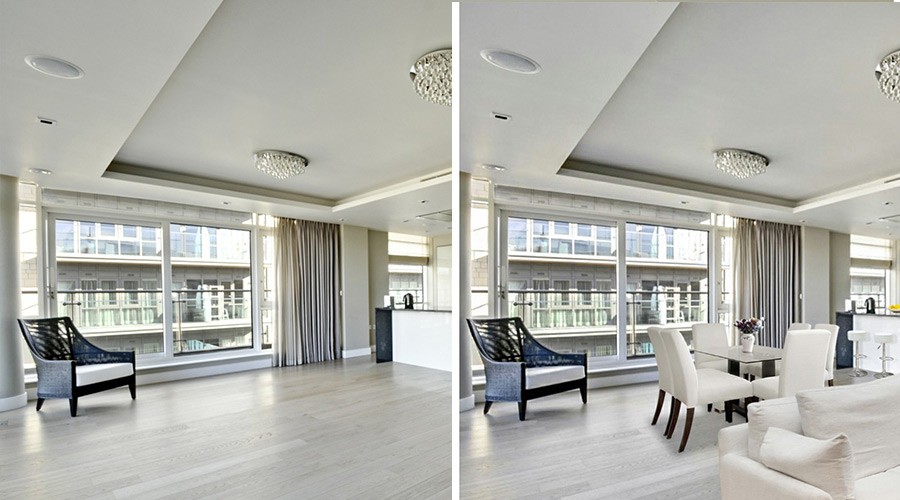
2. Take note of the condition of the flat, before moving in.
This is very important. Taking note of the condition of your flat before you move in and jotting down these details on an official form (usually provided by the landlord or property management company that markets your flat) is a great way to save yourself a lot of headaches later on. This provides you with an opportunity to fully assess the functionality of the apartment and any issues that need addressing. This could be anything from a tap not working properly, to cracking paint or the appearance of mold in a shower, for example. Once you’ve found any issues, it’s important to make your landlord or the property management company aware of these problems, and ask that the issues are noted and rectified. This will stand you in better stead in the future, as you can be held financially responsible for damages and issues that aren’t noted officially by a landlord or property management company before you move in. These damages might have been caused by a careless previous tenant, but if there’s no record of this, when you eventually move out you might just receive a monstrous bill.
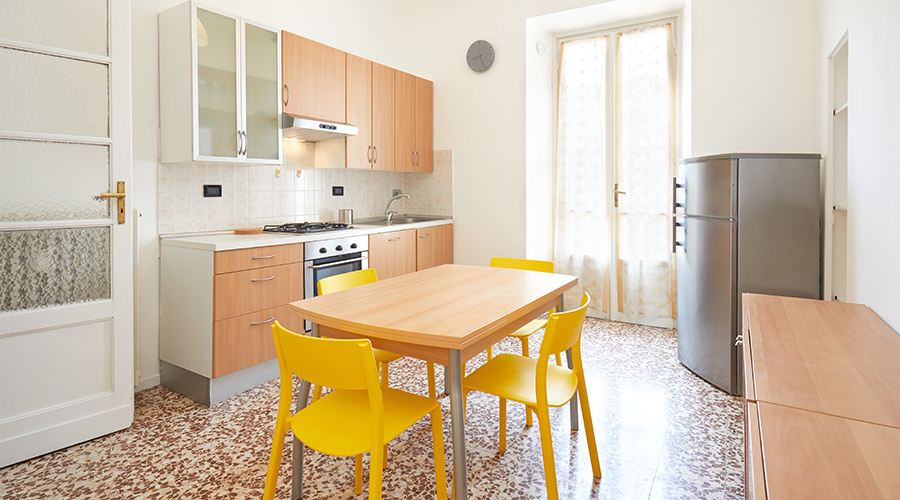
3. Is my flat pet-friendly?
Before moving in, find out whether you and your fuzzy four legged friend can live happily ever after or if you’re going to face problems with neighbours complaining. Getting a call from an angry landlord about their flat not being pet-friendly, is never a fun conversation. If you do own pets, it’s best to find a place that’s well-suited to the both of you, and where you won’t have hassles around keeping a dog or cat.

4. Length of lease and important dates of occupation and termination.
Finding out the date of occupation and termination, are two of the first things you should consider when looking for a rental. Typically listings will mention the date of occupation first and foremost, as well as the length of the lease the landlord is looking for from a tenant. Sometimes this lease period can be extended, if all goes well during the initial period. It’s good to get in contact with the property agent or landlord to find out about how long you can expect to stay. However, generally the lease period stated on an ad is a good guideline. It might also be a good idea to wait until the viewing to ask this kind of question. Phone calls and emails can feel impersonal. A landlord or agent doesn’t know you who are, or how you might treat their property – which can mean a reluctancy to reveal a possibility for your lease to be extended in the future. Typically, the date you can move in will also be stated on the ad. Sometimes, you can ask to move in sooner, but this is only like if the previous tenant has left and an inspection of the property has taken place. This also may incur a fee to cover the extra weeks you’ll occupy the flat for. Understanding when you can occupy your dream pad will make you life a lot easier, and help you plan for your moving day effectively, with no loose ends.
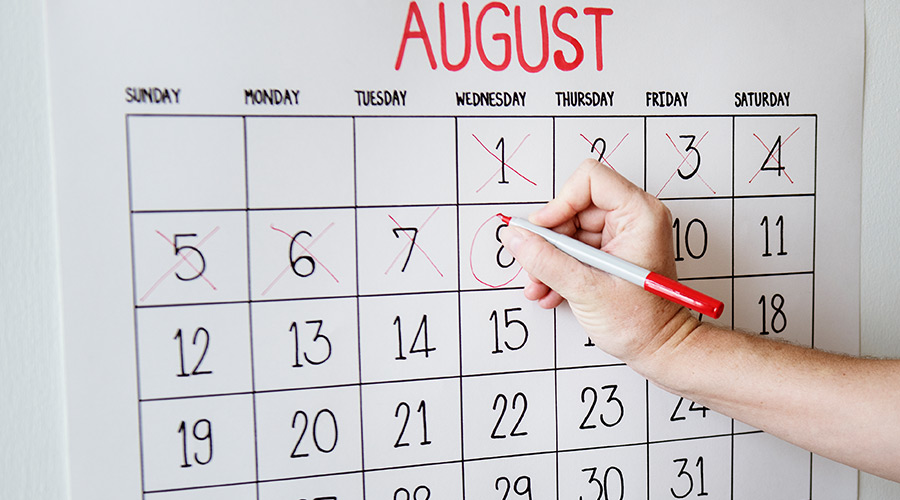
5. Verbal amendments or agreements are not binding
It’s common for discussions to happen between you and the landlord or property agent when you’re viewing an apartment and getting ready to sign a lease. At this point, there may be issues with the flat that need resolving. Maybe there’s something listed in the ad which isn’t available anymore in the physical flat. Maybe there are plumbing issues, or a cracked tile. Whatever the issue is, it’s crucial to know that even when it’s been agreed verbally that a problem will be rectified – this is not a legally binding agreement. You could still be left with the same issues you had with your space when you when you went for a viewing. Or worse, having to foot the bill for somebody else’s mess. So, get any agreements in writing. This way, there is only one version of events and there isn’t a back and forth over who said what, when, causing a clash of opinions and future conflict.

6. Can I sublet my flat?
Sub letting can be a useful way to make sure your flat is occupied during a period you’re not around – and lets you make some easy money! But, with a lot of landlords, subletting is completely against the rules. And fair enough, it essentially takes money away from them, whilst allowing you to recoup some funds during a month you’re not staying in the flat – which doesn’t sound entirely fair. Make sure you check what the rules are around subletting of your chosen rental.
7. What kind of changes can I make to the flat, if any?
Landlords are notoriously sticky when it comes to a tenant making any physical changes to an apartment they own – and rightfully as it is their property. Of course there’s a difference between putting a nail into the wall to hang a family portrait, and constructing a new addition for the kitchen – but both are just as likely to be forbidden within one’s lease. It’s a great idea to spend time going through your lease with a fine tooth comb, to find out what constitutes a physical change to the apartment and what you can and can’t do. As a rule of thumb, it’s always better to change nothing. Although hammering a nail into a wall to hang a homely picture doesn’t sound like a travesty, it could still leave you liable for any damage caused.
8. Can I negotiate terms within my lease, and how?
Yes! It’s important to note that rental agreements can be altered, and often times it’s to benefit both the tenant and the landlord. The most crucial thing to take into account when negotiating your lease is your approach. Although you may have found something within your lease that doesn’t sit well with you, tackling the problem from a factual, non-emotive and non-confrontational standpoint is the best bet. So, what can be negotiated within a lease?
- The rental amount.
- The length of the lease.
- Whether the flat is pet friendly or non-pet friendly.
- Maintenance and financial responsibility for conducting future maintenance on the property.
- Painting or fixes to non-functioning aspects of the flat (maybe a tap is not working, or the shower just trickles, as examples).
- Other aspects of a lease can be negotiated, as long as you have the evidence to support your argument. Use a calm tone and try to understand the situation from both you and your landlord’s perspective.
Can I negotiate a lease when it’s already been signed? Yes, you can but this is slightly trickier. When renegotiating it’s helpful if you’ve been a good tenant, consistent with payments and without a list of complaints from neighbours or the body corporate. This can provide your landlord with some food for thought, if he/she wants to increase the rental fee, but would still like you to keep renting the apartment because of your great history, you might be able to negotiate a lower percentage increase. This same logic and approach can be helpful when renegotiating other aspects of your rental agreement. However, we would strongly suggest taking into account some of our suggestions to negotiate on the terms of your lease before signing.

9. Review the terms of payment within your lease
Financial matters can get tricky so it’s a great idea to find out the full details behind what’s covered in your monthly rental and any increases that you can expect to occur in the future. Find out when the best time of the month is to pay your landlord or the rental company. Keep in mind what the cut off date is for payment, plus whether you need to provide a specific reference for your account when settling or who you should email a proof of payment to, upon settling your rental fee. Having these basic procedures in place will ensure that there’s no disagreements in the future over whether your payment has been confirmed or what you should be paying for. Price increases are often laid out in your lease agreement from the beginning, and it’s typical to experience a 5%-10% rise in your rental within a 6 – 12 month period. The key is to find out about any potential increases so you can prepare you foolproof budget. Also, keeping this percentage hike in mind can help you negotiate with the landlord for a lower percentage increase when you renew your lease in the future.
10. Find out about your deposit
A deposit is requested by a landlord or property management company upon renting a flat to a new tenant. This deposit typically amounts to one month’s rent, or sometimes up to a total of 3 month’s rental fees. This is meant to cover any foreseeable future expenses that might come as a result of the flat or its contents being damaged or removed, or any much needed maintenance that needs to take place when a tenant moves out Usually, this deposit is refundable and is returned to the tenant at the end of his/her lease, upon completion of an inspection of the apartment. This post-inspection, or outgoing inspection, is used to determine that the space is still in the same, or a relatively similar condition, as it was when you moved in and why noting any defect upon moving in is important! Alongside an outgoing inspection, there is an incoming inspection for the tenant moving in. This allows the tenant the opportunity to state any issues they have with the premises to the landlord or property agent, upon first inspection. After this point in time, there is usually a week to two week period in which a tenant can contact the landlord or agent to inform them about additional issues within the flat. These issues are then meant to be rectified on their behalf. Once this period has ended, the landlord or property agent will hold you accountable for any damages noted when your lease comes to a natural end and you’re looking to move out. An important note here is also to ensure that the deposit is kept in an interest bearing account. This is a legal requirement and should be paid out to you at the end of the lease with the interest earned.

11. Is parking included in my rental fee, or is it charged at an additional cost?
Parking is often the added perk on a property listing that can provide the swing vote on whether or not to rent an apartment you’re looking at. If you don’t own a car, or plan to use one in the near future, then picking a flat without parking isn’t a concern – just make sure you’re near enough to public transport, your workplace or university. But, if you do own a car, finding an apartment that has parking available can be hard enough and you wouldn’t want to find out a few months into your lease that the spot you thought was free is actually setting you back R500 a month. In many suburbs, you can find on-street parking which is great but at your own risk and can actually affect your car insurance premiums depending on whether your car is parked on the street or in a secure parking spot or facility. Parking spaces can fetch anywhere between R250 and R1800 a month, depending on your area, and renting a bay in Cape Town will set you back a pretty penny each month, upwards of at least R1200. Most commonly, parking is either provided underground in a secure parking structure, or right outside you flat in an open bay within a complex or sometimes you might even have a bay dedicated to your flat that is positioned on the road outside your apartment. Find the part in your lease about what is included within your rental fee, or search for a paragraph that mentions the parking option attached to your rental. Typically, an agent will let you know if the parking is included in the rental fee, but there’s always a chance that can gloss over some finer details – so it’s always better to check and see if a sought-after parking spot is going to be all yours and what price there is to pay.

12. Who is responsible for conducting maintenance for my flat?
It’s important to find out who will maintain different aspects of your flat, before moving in. Once you move in and something goes wrong that needs immediate attention, you may not know who the best person is to reach out to in a crisis for timely support. Typically, the body corporate or building management within a complex will be your first port of call to inform about any issues with your apartment. Ideally, your body corporate might handle the situation straight away, if it’s major or pressing, but it’s also common for your landlord to have contacts to sort out issues with plumbing, tiling and other fixes not covered by a building maintenance team. Organizing a third party can be time consuming, and can also mean your problem might not get sorted straight away. It’s also wise to be aware of who will front the bill for the maintenance work. If it’s a damage caused by you, the tenant, then you will need to foot the bill. Otherwise, if an agent or landlord expects you to pay for the maintenance as a result of issues that weren’t your fault, when the specialist completes their maintenance – then find out when you can expect to be reimbursed.
13. What are the rules for guests & quiet time periods?
The type of accommodation you choose will determine the rules you have to abide by. Whether you choose private student accommodation, or your own flat, each has it’s compromises. Living in private accommodation often comes with less rules than a university residence, however, it is still strict and you will have to abide by their noise policies, and visitors policies. This may mean a very early cutoff on noise during the week and restrictions on having guests and overnight visitors. Renting your own flat outside of student accommodation, may have less restrictions around noise cutoffs and overnight visitors, but you will need to stick to the rules of the body corporate or building management. In addition to this, noise restrictions work two ways, they stop you from annoying neighbours, and neighbours from annoying you! Having a quick look over the rules of your block in your lease will help you understand what’s expected of you when staying in private accommodation.
14. Do I need rental insurance?
Laws in South Africa set out within the CPA protect renters from easy terminations for instances of overdue rent or certain other actions. However, this is assessed on a case-by-case basis and issues are typically settled by a court ruling, if the matter is severe enough. Some believe in having renters insurance to further ensure that they aren’t going to be taken advantage of financially by a landlord or property management company. You can choose from various types of insurance when it comes to renting a flat. Landlord’s will likely already have insurance on their property in case of damage due to flooding, fire or any other catastrophic instances, and even have their furniture and belongings insured if it is a furnished apartment. It’s important to note, this insurance does not cover your belongings within the property and any loss or damage of your belongings due to unforeseen circumstances. This policy also won’t cover any damage you’ve caused to the owner’s apartment. It’s worth getting insurance to cover your belongings if you are worried about the security of your flat, or the potential that one of the neighbours causes an accident one day, such as a fire, which causes the destruction of your belongings. If you plan to share this type of coverage with a roommate, then we would suggest reviewing some of the pro’s and con’s of sharing a renters insurance policy here.
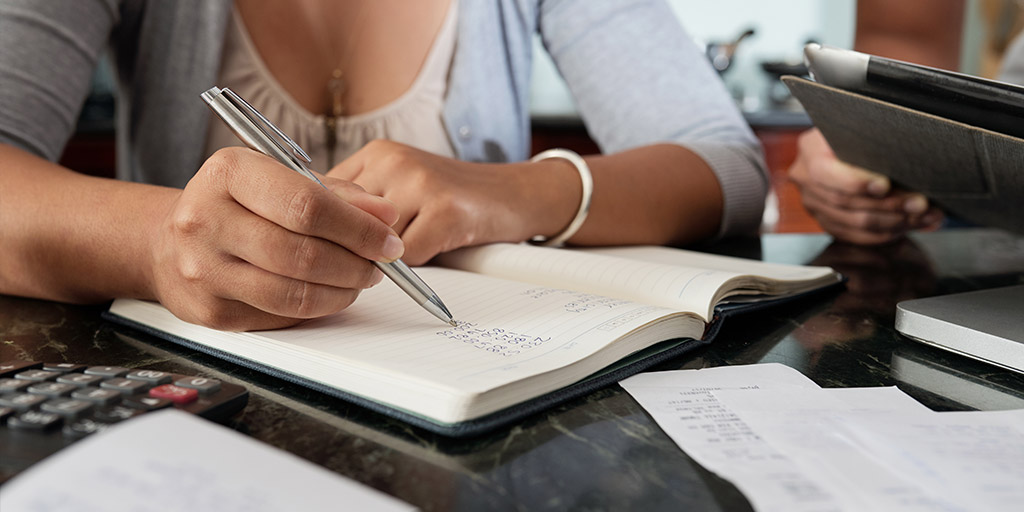
15. Understand what can cause the termination of your lease agreement.
Lease agreements will differ depending on the property management company renting the property and/or the landlord’s terms. However, there are some more common clauses and actions that can result in you breaching your lease and having your agreement terminated as a result. Defaulting on payments on a regular basis is an easy one for starters, and usually provides enough grounds for the termination of a lease – depending on whether it’s laid out that this is a “major breach” of terms within the lease. Sometimes there’s even a sub-clause related to this is a forfeiture clause, which reserves the right of the landlord to end a lease agreement with a tenant on the basis of one missed payment. Although this may not occur, it’s good to know the potential power a landlord or property management company holds and what’s reasonably expected of you in terms of monthly payment. Other infringements that could result in the termination of a lease can include, but are not limited to:
- Obnoxious and unacceptable behaviour towards neighbouring residents.
- Causing damage to the property.
- Showing “dangerous or life threatening behavior” within the landlord’s property.
Although these are the basics when moving into private accommodation, it’s still important to know the ground rules before moving in. Other statements might be made within the “grounds of termination” section in the lease, which we would suggest reading carefully before signing.
16. Check that everything in your new apartment actually works
Although, your new potential pad might have looked stunning from the photos in that online ad you came across – you still need to make sure that the infrastructure in your flat is sound and that things actually function the way they’re supposed to. What are these some of these “things”?
- Does the shower/bath run? And what’s the water pressure like?
- Do the appliances work? (microwave, oven, toaster, kettle, TVs, etc).
- Does the toilet flush?
- If internet is installed within the flat, does it work?
- Is the lock on my door properly secured? Or is it fragile and could leave me open to security breaches?
- Do the taps in my bathroom and kitchen sinks work?
- Do the lights work? (Room lights, bedside table lights and dimmers).
- Do I have a prepaid electricity unit? And does it work?
You can also use this opportunity, when assessing what works and doesn’t work within the apartment, to ask how to use certain things (especially if they’ve been set up or altered since the occupation of the previous tenant). For example, if there’s internet installed, how can I go about getting it activated? Or is there a specific way you need to turn on the geyser to get hot water for washing dishes or running a shower or bath? Flats usually have some unique quirks, and it’s great to get a full understanding of the way things will work around your new home before you move in.
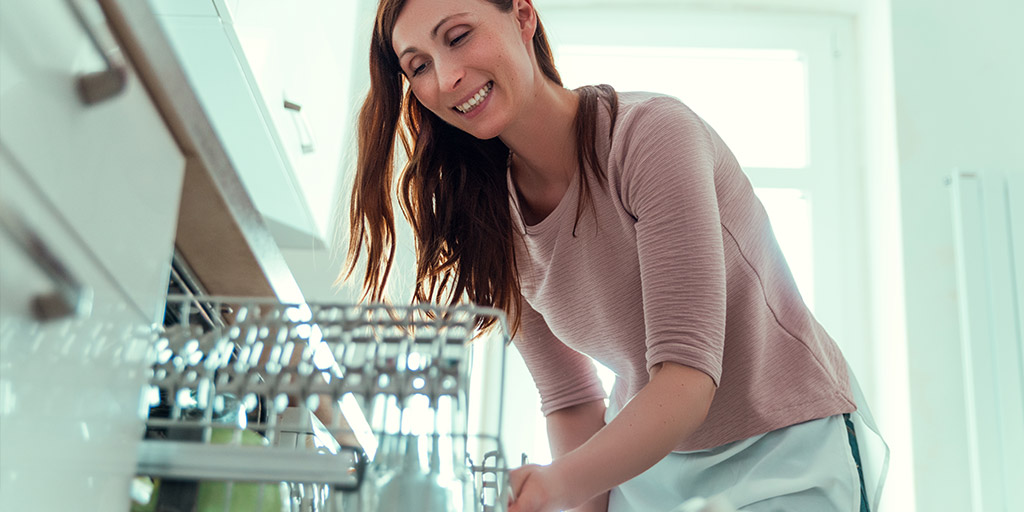
17. Find the contact details of the correct person(s) to contact regarding issues with your rental
Having covered who may be responsible for the maintenance within your flat, we move on to the correct contact persons for any issues you may have. Sometimes, when experiencing a problem with anything in life, one of the most frustrating things is not knowing who the right person is to talk to at the time, that will sort out an issue quickly. When an issue occurs, you don’t want to spend hours on the phone with multiple parties playing a game of broken telephone surrounding the details of your problem and who the right person is to contact for help when you’re in a pinch. This can make your original problem more than twice as stressful, so we suggest finding out in advance who really is the right person to contact for issues. Renting from a property management company often means they might have a reliable person for sorting out any problems with plumbing or electrical faults for example, however, it’s also likely that somewhere in your lease that you could be responsible for oganising a helping hand (even if you don’t end up footing the bill at the end of the day). It’s worth having a good read through the fine print to figure out your best bet for communication when it comes to making small and large scale fixes in your new flat.

Having read through our suggestions, we’d like to know what else you look for when signing a lease for a new apartment? If you’re an experienced tenant looking at our list for some extra things to keep in mind, what’s a specific clause you’ve found important to look into, in the past, before signing a lease? Scroll down to the end of the page and let us know in the comments. We may add your suggestion to the list if it’s really great. We wish you the best of luck with the pursuit of your new apartment! There are some exciting times ahead of you. If you’re seeking any extra suggestions to help you as a student in Cape Town, check out our student resources page for tips to help you navigate different aspects of life in the Mother City.
So, join us in Durban Road in Mowbray by booking a viewing for our spacious, modern apartments and the spectacular sight of Table Mountain!




